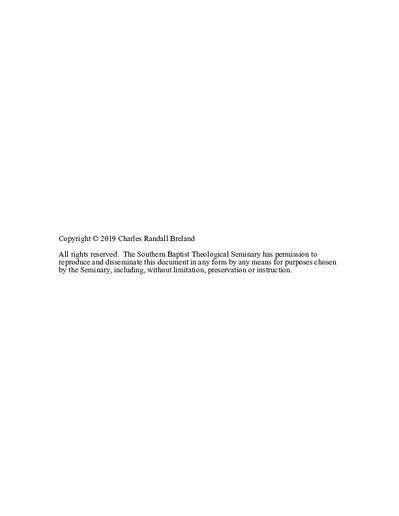The Year of the Lord's Favor: An Old Testament Theology of the Jubilee
Abstract
This dissertation argues that the Jubilee is (1) a law of ancient Israel that aimed to preserve Israel’s egalitarian system of land tenure, recalled the Sabbath rest of creation, and reenacted Yahweh’s liberation of Israel from Egypt; and (2) a type of God’s coming eschatological redemption and rest through the King-Messiah. The biblical Jubilee thus offers several fruitful trajectories of inquiry: historical, redemptive-eschatological, and ethical. Forming a coherent theology from these various categories is no easy task. The aim of this work is to weave together an Old Testament theology of the Jubilee that takes into account a number of textually-based observations regarding the Jubilee.
Chapter 1 provides a history of research. Chapter 2 looks at ancient near Eastern parallels of the Jubilee and identifies the slaves of Exodus 21 as Israelite debt-slaves. Chapter 3 places the Jubilee within the Sabbath spectrum and argues that the Jubilee looked back to the Sabbath rest mankind enjoyed at creation. Chapter 3 also deals with Deuteronomy 15, arguing that the Sabbath year provided for release of debts and debt-slaves but did not release land that had been lost or leased. Chapter 4 looks in-depth at Leviticus 25. It argues that the Jubilee was the capstone of Israel’s system of social justice, that the Jubilee reenacted the Exodus redemption, celebrated the giving of the Torah at Mount Sinai, and released land along with debts and debt-slaves. The final chapter shows how the Jubilee became a motif within the prophetic expectation of the second exodus and a type of God’s coming eschatological redemption. Chapter 6 provides a summary theology of the work based on eight observations regarding the Jubilee.

